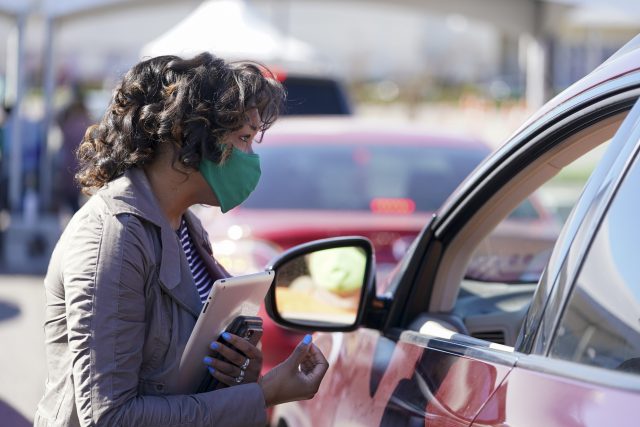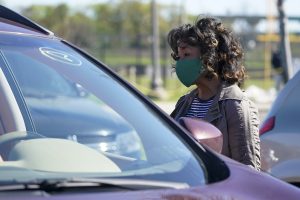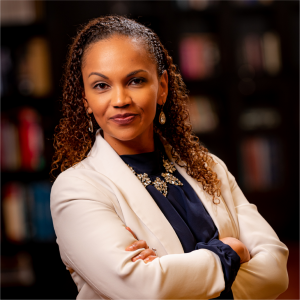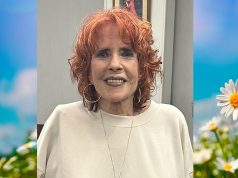
By Erica Wright
The Birmingham Times
Many in the African-American community may not have access to or credible information about the COVID-19 vaccines, so two entities are working to change that, as well as address disparities in those who receive the doses.
The Minority Health and Health Disparities Research Center (MHRC) at the University of Alabama at Birmingham (UAB) and Acclinate, a health care solutions provider and MHRC partner, are working to assist residents who oftentimes face challenges and barriers to getting the vaccine, said Tiffany Osborne, MHRC director of community engagement, and Tiffany Whitlow, Acclinate co-founder and chief development officer.
“Like our COVID-19 testing, for which we went into communities and set up pop-up testing sites, we’re also working on vaccination sites, through which we go into communities to make the vaccines available to [residents]. … In some cases, those will be within walking distance [for many residents], which is important to us,” said Osborne.
UAB has opened community vaccination sites in predominately Black areas of the city, including at A.H. Parker High School in West Birmingham and most recently at Cathedral of the Cross Apostolic Overcoming Holy (AOH) Church of God in East Birmingham. Osborne said the goal is to provide easier access to Black Birminghamians who want to be vaccinated.
The MHRC is helping in other ways, too, including through a call-in line UAB Hospital: 205-975-1881.

“We have a program through which our patient navigators are answering the phones … to help provide answers to those who have questions,” Osborne said, “People who call the number can talk to a patient navigator, who will fill out the online registration and help the caller find transportation. If there are any barriers or if the caller is not able to get to their appointment, the patient navigator will help.”
The MHRC also works with UAB to provide information via fliers and yard signs, as well as by working with the faith-based community and using social media to inform residents about vaccination sites in their areas.
“We are working on a plan to [search through] the current registration list utilizing ZIP code data” to make sure people who are registered for a vaccine are registered at a site that is close to their area in order to limit some of those transportation barriers, Osborne said.
For example, if a resident lives closer to A.H. Parker High School on the west side but the MHRC representative looks at their ZIP code and sees that they have an appointment at Cathedral of the Cross on the east side, they will work to make sure an appointment is set up at Parker High School instead, which could be within walking distance from the person’s home.
“We know transportation can be a challenge, and many people are just trying to get to vaccinated. In some cases, that may mean a lengthy drive across town. If we can have a site in a particular neighborhood, … we feel like that may address some of those transportation barriers,” Osborne said.
Lack of access is not the only barrier keeping some Black residents from getting the vaccine. Fear and skepticism may play a role, as well, said Acclinate’s Whitlow.

“We need to acknowledge past challenges, like the Tuskegee syphilis experiment and the case of Henrietta Lacks, listen to concerns [from residents], and replace those concerns with facts that restore confidence and provide examples that apply to them and make sense,” she said.
The Tuskegee syphilis experiment, officially named the “Tuskegee Study of Untreated Syphilis in the Negro Male,” was a research project that earned notoriety for its unethical experimentation on African American patients in the South.
Henrietta Lacks, a Black woman who lived in Baltimore, Maryland, and was a patient at Johns Hopkins Hospital, unknowingly donated her cells, which were the first and, for many years, the only human cell line able to reproduce indefinitely. Her cells, known as HeLa cells (for Henrietta Lacks) remain a remarkably durable and prolific line of cells used in research around the world.
Explaining how the COVID-19 vaccines work and the role of African Americans in the vaccine development process and clinical trials is necessary “because a lot of minority communities feel like they just inherit scientific advances, rather than play a part in them,” Whitlow added.
“The message we are sharing is that, although the choice of whether or not to receive the vaccine is a personal choice, it is also best to make an informed choice,” she continued. “So much of what minority communities believe about vaccines is rooted in mistrust and mistreatment by medical providers, and we are trying to combat that mistrust with credible information.”
Like many leaders in the clergy and the political and medical sectors, Osborne and Whitlow stress the importance for African Americans to get vaccinated.
“The Black community has been disproportionately hard hit by the [COVID-19] pandemic, has a higher degree of health conditions that predispose them to COVID-19 infections and death, and, additionally, make up a fairly large proportion of the essential workforce, which increases the potential for exposure to infection,” said Whitlow.
To register for a vaccination, call UAB Hospital at 205-975-1881. To get additional COVID-19 information, call the UAB GuideSafe Hotline at 205-934-SAFE (7233).



